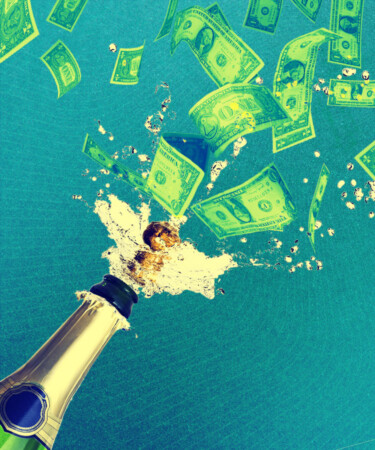Champagne is popular for good reason: The region’s tight regulations and high standards signify that any bottle labeled “Champagne” will be well made and delicious. Plus, when it comes to celebrations of all kinds, nothing sparks excitement quite like popping the cork on a beautiful bottle of bubbly. But Champagne also comes with a price tag — often a very large one.
But the popularity of this style doesn’t mean there’s no value to be found in the category. For the best deals in this rarely affordable category, we asked wine pros to recommend their favorite bottles under $50. Here’s what they said.
The Best Cheap Champagnes, According to Sommeliers
- Champagne J. Lassalle
- Henriot, Brut Souverain NV
- Charles Heidsieck NV
- L. Aubry Fils Brut Champagne
- Champagne L’Échappé Belle Extra Brut
- Guy de Forez “Tradition” Brut
- Domaine Dame Jeanne Piollot “Prémices” Crémant de Bourgogne Rosé NV
- Lebeau-Batiste “Tradition” Brut
- Klepka-Sausse Champagne
- Domaine Bérèche et Fils Brut Réserve
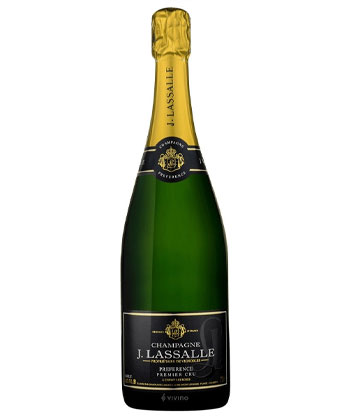
“The Lassalle story starts with tragedy but is defined by perseverance. When Jules Lasalle passed away in 1982, the Champagne was continued by his wife Olga and their daughter Chantal. Their wines captured the eye of a young Kermit Lynch, and they were the first winery to join his (now legendary) import portfolio. They continued to make spectacular wines until 2006 when Chantal’s daughter Angeline joined the team. Such a dynasty of women is unprecedented in Champagne, and their impeccable standards can be best summed up through their mantra: ‘une femme, un esprit, un style’ (one woman, one spirit, one style).” —Austin Farina, wine director, Sammie’s Italian and Favorite Pizza, Austin, Texas
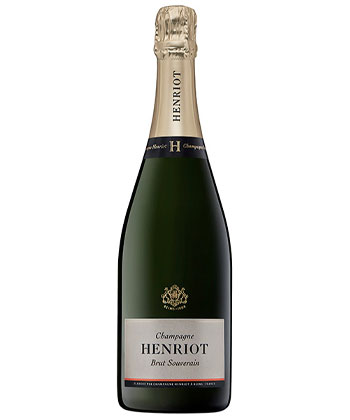
“My favorite Champagne that seems to consistently be under $50 is Henriot Brut Souverain NV. A dry, full-bodied style, it can pair with a rich meal or sip well on its own. This Champagne has all the classic flavor notes of toasted brioche, citrus peel, and chalky minerality. Other favorites that are normally under the $60 price range would be Agrapart Terroirs NV, Chartogne-Taillet Cuvee Ste. Anne NV, Philipponnat Royale Reserve NV, and Gosset Grande Reserve NV. There are sometimes deals on these that dip under $50, at which I suggest stocking up!” —Willi Sherer, master sommelier, Elyse Winery, Napa, Calif.
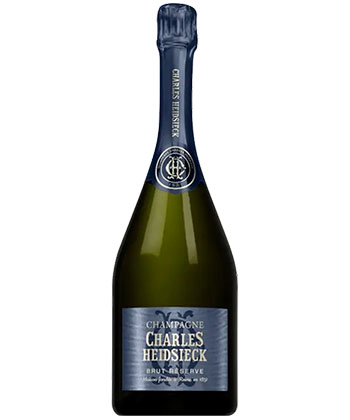
“Charles Heidsieck NV is always a buy for me when it’s on sale for under $50. The house uses a larger proportion of reserve wines in their flagship non-vintage bottling. This gives you more of the full texture and toasty brioche notes that are common in vintage Champagne, at a much friendlier price point.” —Francis Kulaga, sommelier and beverage director, Birch & Rye, San Francisco
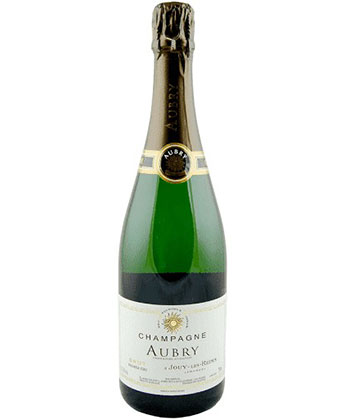
“This showstopper from Aubry (a récoltant manipulant or grower producer) always leaves me salivating for more. The people who grow the grapes make the wine, giving them a deeper understanding of how to best steward each vintage. Only premier cru (1er) vineyards are included in this wine, and half of the blend is a perpetual reserve (think Solera method) that dates back to 1998! Not to mention OG varietals like Petit Meslier and Fromenteau still thrive in this area (and wine) thanks to Aubry, despite the homogenization of the area due in part to the big Champagne blending houses that most know.” —Hamilton Weaver, sales representative, Skurnik Wine, Philadelphia
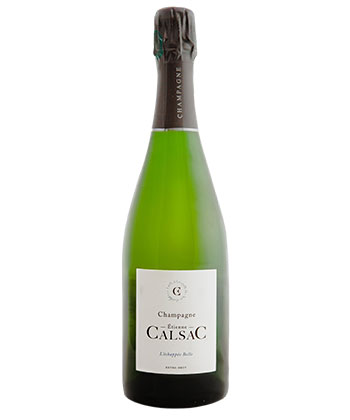
“It’s becoming increasingly difficult to find great value in Champagne under 50 bucks, but don’t lose hope — it’s still possible. I really enjoy the wines of Etienne Calsac, and his intricate ‘L’Échappée Belle’ is, to me, one of the best values in the region. Etienne took over his family estate when he was 26, is a mindful farmer (he tends to everything by hand), and has quickly emerged as a rising star in the region. If you feel like meandering out of Champagne, I’d suggest a Crémant from the Jura or Alsace. One of my new favorites is the charming Rosé Crémant d’Alsace by Valentin Zusslin (the history of the estate can be traced back to 1691!), which is lithe and elegant but structured — perfect with food or as an aperitif.” —Arjav Ezekiel, co-owner and wine director, Birdie’s, Austin, Texas
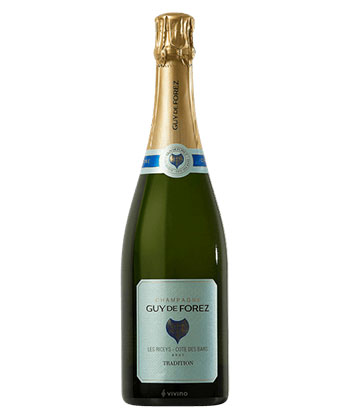
“My go-to bottles of Champagne under $50 are Guy de Forez ‘Tradition’ Brut ($44 at Compline) and Lebeau-Batiste ‘Tradition’ Brut ($45 at Compline). Both are grower Champagne bottles that over-deliver. Guy de Forez is Pinot Noir grown in the Côte des Bars, and it feels winter-weight and toasty, just in time for blanket season. The Lebeau-Batiste, a new find for us, gives you everything you want in classic brut Champagne — elegance, a little dosage, great acidity, and leesy aromatics.” —Matt Stamp, sommelier and founder, Compline Restaurant and Wine Shop, Napa, Calif.
“Crémant is the word to look for on a sparkling wine label if you like to drink Champagne but don’t want to spend what Champagne demands. Champagne may only be used on the label of wines produced in the Champagne region; Crémant is the same winemaking process (méthode traditionnelle) and often the same varietals, but produced in other regions of France. You will find Crémant from Alsace, Loire, Burgundy, and other regions all over France. The word crémant is the important thing and near guarantees that you will be getting a wine that is as close to Champagne as possible, but for a considerably lower price tag.” —Sande Friedman, wine director, Di Bruno Bros., Philadelphia
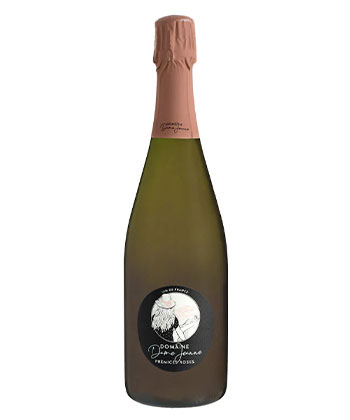
“Jeanne Piollot makes my favorite ‘I can’t believe it’s not Champagne’ sparkling — because it basically is! The daughter of famed grower Champagne producers Dominique Moreau of Marie Courtin & Roland Piollot of Piollot Père et Fille, Jeanne grows and crafts her wines in Molesme, just over the Champagne border in Burgundy. Her ‘Prémices’ Rosé Extra Brut is an ode to Champagne rosé, crafted from Pinot Noir, 24 months on the lees, and it’s around $40 to $50 on the retail shelf. If you can’t find Jeanne’s wines, reach for a Crémant de Bourgogne or Crémant d’Alsace Rosé at a similar price point — they’ll always be Pinot Noir-based, dry, and delicious!” —Danya Degen, director of wine and operations, The Duck & The Peach, La Collina, and The Wells, Washington D.C.
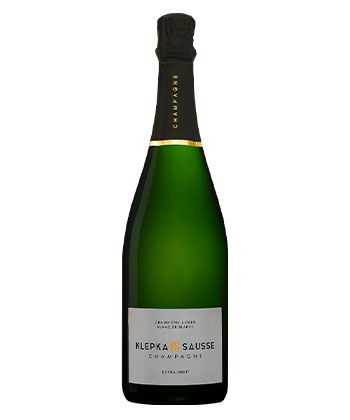
“I really like the Champagnes from Klepka-Sausse in Oger quite a bit. Great grower Champagne from all grand cru fruit at this price point is pretty difficult to find, but I think that this bottle really delivers both in terms of flavor and value. Champagne is one of my favorite wines to pair with food, especially during the holiday season, and the clean, bright fruit, notes of minerality, and tight bubbles present in this bottling really make for a great wine to pair with everything from crudités to sushi to creamy pasta to turkey and all the fixings. It’s also fantastic to just sip on its own, which, if I’m being completely honest, is how you’re most likely to find me enjoying it.” —Alexandra Cherniavsky, brokerage director, SWIG Partners, Philadelphia
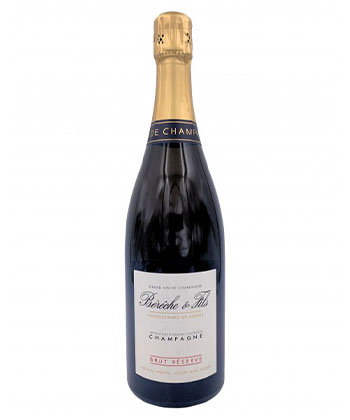
“These days, it’s hard to put under $50 and Champagne in the same sentence, but my go-to bottle around that price point is Bérêche Brut Reserve. It is equal parts Chardonnay, Pinot Noir, and Meunier, farmed biodynamically from brothers Raphaël and Vincent Bérêche who are producing some of the most highly sought-after wines in the region. It is structured, mineral-driven, with great complexity. Buy a case and lay a few bottles down for a couple of years — they will only get better with some bottle age.” —Luke Sullivan, sommelier, Eleven Madison Park, New York
